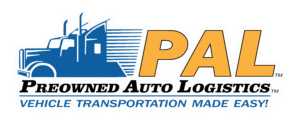Auto Shipment Options: Brokers vs. Carriers vs. Transport Management Companies
In the digital age, everyone’s first stop for information is Google. Looking for a car shipping company to help you move your car from one place to another is no exception. However, what may seem like an easy task can quickly get confusing. Once you type your search query into a search engine like Google, you’ll find that there are two main types of car shipping companies out there: brokers and carriers. While both ensure that your car gets to its final destination, these types of companies aren’t the same. Let’s take a closer look at the difference between brokers and carriers and why it matters when you’re searching for an auto shipping company.
The Difference Between Car Transport Carriers, Brokers, and Auto Transport Companies
Auto Transport Carriers
Carriers operate the trucks that ship the vehicle.
Any driver who owns and operates a truck can be a carrier. These carriers typically schedule shipments through a broker, who then verifies licenses, types of insurance, and USDOT credentials to ensure they’re working with a legitimate carrier.
Larger carriers often operate and coordinate a fleet of trucks that they own. They may sometimes also work with brokers. Carriers may also work with owner-operators if they need extra help during a busy moving season.
Auto Transport Brokers
Brokers coordinate the shipment of your car using carriers.
Car Transport brokers usually work with multiple carriers to serve a wider region, while carriers typically operate within one or two regions within the county.
Auto Transport Companies
There is also a third option: working with an auto transport company. These companies manage the entire shipment process from beginning to end, including coordinating the auto shipping, updating clients, handling any potential issues, and ensuring timely delivery. Auto transport companies may have a fleet of their own trucks (like a carrier) and they may supplement that fleet by hiring outside carriers when needed (like a broker). With auto transport companies, you get the best of both worlds, and it makes the entire car shipping process less stressful, and more time and cost efficient. Instead of worrying about various carriers and brokers, you can work with one company that does it all.
Similarities of Car Transport Carriers, Brokers, and Auto Transport Companies
Now you know what each auto transport option offers you, but you may still be confused.
There are companies out there that operate only as brokers or only as carriers. However, many do both. There are some brokers that own fleets of their own, which makes them broker-carriers. Some carriers also work with owner-operators, acting as a broker. Most of these companies serve the same purpose: to get your car safely from one place to another. Many of them also offer full-service.
Pros and Cons of the Car Shipping Options
There are obvious similarities and overlaps between brokers, carriers, and auto transport management companies, including that they all work with customers to coordinate the shipment of cars. Here are the benefits of each:
Brokers
Pros
You’ll find that brokers are one of the most flexible options because they aren’t tied to the schedule of a particular fleet. This means that they can meet your time needs more effectively. They’ll also be able to find carriers with spots that will be able to get you a faster pickup time.
Brokers vet all of the truckers that are responsible for the shipment of your vehicle, so you can rest assured they’re properly licensed, insured, and accredited. They also provide excellent customer service so that you can get the best deals and have any issues solved for you.
Cons
The most significant disadvantage of working with a broker is that brokers don’t have direct control over transit times or pickups. This means you could face unexpected delays.
Carriers
Pros
When you work with a carrier, you may get a lower price when it comes to shipping your car. Because you won’t be using a broker, going directly to a carrier typically means paying less. Unfortunately, there are no guarantees that you’ll save money as service fees vary from company to company.
Also, using a carrier means that you have only one contact. If there are any issues with your car shipment, you’ll communicate directly with those in charge instead of using a middleman. This can make solving issues much simpler.
Cons
Depending on the carrier you use, you may find that there’s a lack of communication. For example, if a truck breaks down and is carrying your vehicle, the carrier will be more focused on fixing the issue than communicating any potential delays to its clients.
Auto Transport Management Companies
Working with an auto transport management company means combining the benefits of both carriers and brokers. From your initial query to the moment your car arrives, you’ll be working with one company.
Not only that, but auto transport companies typically cover more regions than carriers, which makes a move from one side of the country to another much easier.
Choosing the Best Option
With so much overlap between your options, it can be difficult to find the best one for your needs.
Just because there are a lot of similarities between options doesn’t mean that you should find the cheapest option. As always, there are benefits and disadvantages of all options, and it will ultimately come down to finding the right company that can offer you the services you need. For example, while any broker or carrier can manage the shipment of your luxury vehicle, you may find a broker that specializes in those types of cars.
You may also want to look into reviews. The best way to determine if a company is one you’d feel comfortable using is to see how their past clients have felt about their services. If there were any issues, you might want to address them when acquiring quotes.




